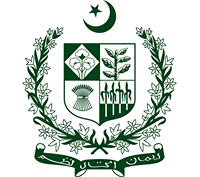United Nations Educational, Scientific and Cultural Organization (UNESCO)
United National Educational, Scientific and Cultural Organization formed on November 16, 1945.
First official General Conference of UNESCO was held in November 19 to December 10, 1946 in Paris (30 countries participated)
UNESCO is a specialized Agency of United Nations. It promote peace, progress, prosperity among the Member States and promote international cooperation among 193 Member States and 11 Associate Members
The United Nations Educational, Scientific and Cultural Organization (UNESCO), a specialized agency of the United Nations, was established on November 4, 1946. Its main objective is to contribute for promotion of peace and security through collaboration among nations through in its field of competency (education, science, information, communication and culture). Thus universal respect for justice, rule of law and human rights and fundamental freedoms is strengthened. This process promotes fraternity among the peoples of the world minimizing discrimination of caste, color, creed, gender, language or religion as defined in the Charter of the United Nations. The UNESCO creates favorable environment, put forward ideas, transfer knowledge and mobilize know-how, goodwill and, wherever possible, resources. At present 198 countries are members of UNESCO. Pakistan joined UNESCO on 14 September 1949, and since then has been playing active role in the UNESCO programmes.
Organs:
The organization comprises of the following three components:
The General Conference:
The General Conference consists of the Representatives of the Member States of the Organization. The Government of each Member State could not appoint more than five delegates, who may be selected after consultation with the National Commission, if established, or consulting with educational, scientific and cultural bodies. The Chairperson of UNESCO Executive Board is Mr. LEE, Byong-hyun ( from Korea).
Functions:
- The General Conference determines the policies and the guidelines for UNESCO and takes decisions on programmes submitted to it by the Executive Board.
- The General Conference summons international conferences of states on education, sciences and humanities or the dissemination of knowledge: non-governmental conferences on the same subject in consultation with the Executive Board.
- The General Conference, in adopting proposals for submission to the Member States, distinguishes between recommendations and international conventions submitted for their approval. In the formal case majority vote shall suffice; in the latter case a two-thirds majority shall be required. Each of the member state shall submit recommendations or conventions to its competent authorities within a period of one year from the close of the session of the General Conference at which they were adopted.
- The General Conference will receive and consider the reports sent to the Organization by Member States on the action taken upon the recommendations and conventions or, if it so decides, analytical summaries of these reports.
- The General Conference elects the members of the Executive Board and, on the recommendations of the Board, also appoints the Director-General of UNESCO.
Voting:
- Each Member States has one vote in the General Conference. Decisions are made by a simple majority except in cases in which a two-thirds majority is required by the provisions of the UNESCO Constitution, or the Rules of Procedure of the General Conference. A majority will be a majority of the Members present and voting.
- A Member State shall have no vote in the General Conference if the total amount of her dues exceeds the total amount of contributions made by it for the current year and the immediately preceding calendar year.
- The General Conference may nevertheless permit such a Member State to vote, if it is satisfied that failure to pay is due to conditions beyond the control of the Member State.
Procedure:
- The General Conference will meet in ordinary session every two years. It may meet in extraordinary session if it decides to do itself or if summoned by the Executive Board, or on the demand of at least one third of the Member States.
- At each session the location of its next ordinary session will be designed by the General Conference. The location of an extraordinary session shall be decided by the General Conference if the session is summoned by it, or otherwise by the Executive Board.
The General Conference shall adopt its own rule of procedure and each session elects a President and other officers. The General Conference shall set up special and technical committees and such other subsidiary organs as may be necessary for its purposes.
Observers:
The General Conference, on the recommendations of the Executive Board and by a two thirds majority may, as per its rules of procedure, the conference may invite as observers at specified sessions of the conference or of its commissions, representatives of international organizations.
.jpg)
